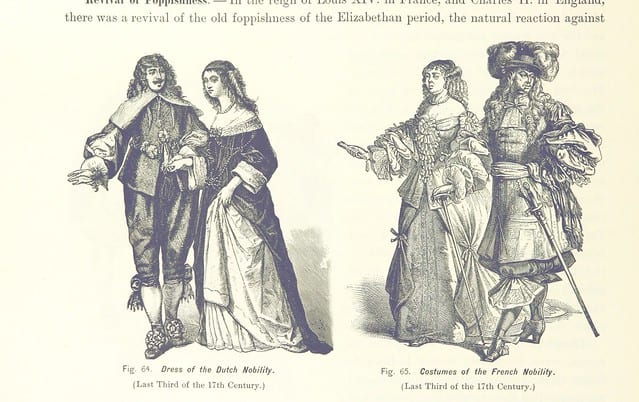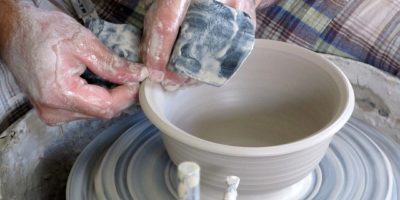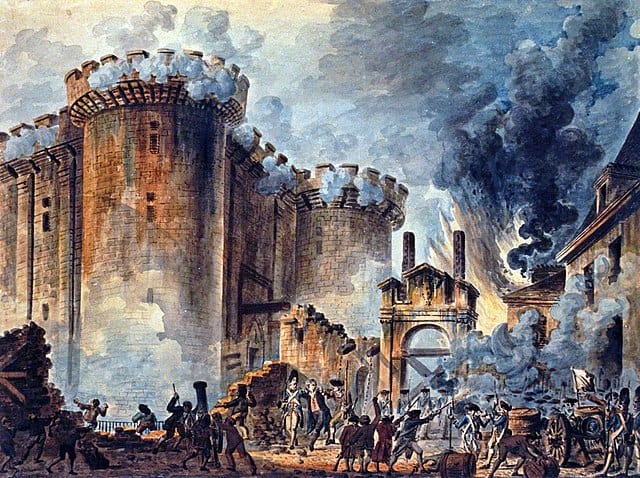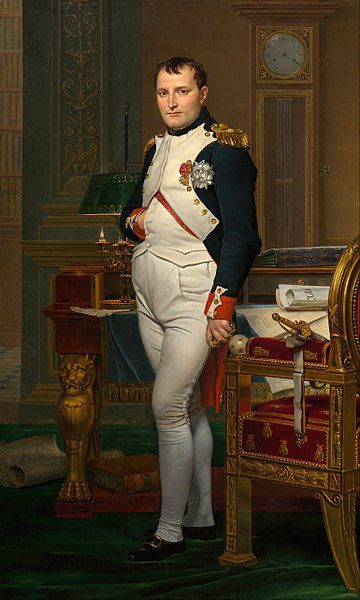The Nobility and Aristocrats of France
Long live the king! Er…or not, if you’re living in France. If you know anything about the country, you’ve likely heard of a little thing called the French Revolution. You know, peasants storming Versailles and Bastille, and a lot of nobility getting their heads chopped off by the guillotine in Paris?
You get the gist. Now, contrary to popular belief, not all of the nobles and aristocracy in France were killed during the Reign of Terror that ensued during the French Revolution. It wasn’t some sort of mass genocide for the nobility in France. But, it is true, that since the Revolution, French nobility have been known to keep things a little on the down low.
It’s been quite the journey for this discrete group since the 18th century. Keep reading to learn more about the nobility and aristocrats of France!
The French nobility and the French Revolution
The French Revolution occurred when the peasant class rose up against the king and queen of France at the time, King Louis XVI and Marie Antoinette. The royal family seemed completed disinterested in their people at the time, ignoring them as they went hungry.
The French government had funnelled so much money into the American Revolution and the Seven Years War that they began to pile on the taxes in order to make up for the difference. This obviously didn’t go over well with the citizens of France as they were already paying absurdly high taxes. The people had had quite enough by the time 1789 rolled around.
In May 1789, an assembly was called by the king called the Estates General of 1789. The assembly consisted of 3 Estates: the clergy was the First Estate, the nobility was the Second Estate, and the commoners were the Third Estate. To make a very long story short, members of the Third Estate took control of the assembly and decided to call it the National Assembly. This signalled the beginning of the bloody French Revolution.
Understandably, the Revolutionaries were not too happy with the French nobility at the time. But, that isn’t to say that they ordered that all of the nobility and aristocrats to be murdered. Only those who were considered to be against the Revolution met their fate with the guillotine.
A few members of the French noble class were actually for the Revolution. Notably, the Marquis de Lafayette, who had served with George Washington in the American Revolution, and the Comte de Mirabeau.
There are different types of French nobility
After the French Revolution, France was declared a republic. However, thanks to Napoléon Bonaparte, it didn’t stay that way for long. After Napoléon dismantled the First Republic, he was in power for about 10 years. Then, France returned to a monarchy and had three kings before returning to a republic in 1848. The Second Republic lasted until, surprise surprise, Napoléon’s nephew, Napoléon III decided that France should have a noble leader again. He dubbed himself emperor.
The new empire ruled France from 1852-1870, and when the Prussian army fell to France, Napoléon III left the country. The Third Republic was formed, and among other things, crushed the Paris Commune uprising in 1871. This republic was filled with corruption, and was dissolved at the start of World War II and the rise of the Vichy government. After the War, the Fourth Republic was formed and lasted until 1958. The Fifth Republic was then established, and still exists today.
So, what do all of these fun facts about France have to do with the nobility?! It’s a long explanation, but it means that there are different types of nobility in France. The aristocrats and nobles that existed before the French Revolution are referred to as the Ancien régime (ancient regime in English). There are also noble families that began when Napoléon Bonaparte was in charge. He was actually known for doling out noble titles fairly readily! During the Restoration of the crown after the First Republic, other noble families emerged as well.
Common misconceptions about the French nobility
There are plenty of misconceptions going around out there about the French nobility. Let’s get started!
1. If you have the particle “de” in your last name, you are French nobility
A lot of people hoping to trace aristocracy or nobility in their family assume that if their names contain “de,” it means that they come from nobles. This isn’t true! In fact, more non-noble French names have “de” in their last names that true nobility. If you have “de” in your name, it’s more likely that your name comes from the Middle Ages, when last names were used to show what you did for a living, or where you lived. For example, the last name Debord is not the name of a noble, but of someone that lived by the river (“de” meaning “from”, “bord” meaning “bank” of a river).
There are also some last names with “de” in them because somewhere along the line, someone in their family wanted to appear fancier. The most famous example of this is former president Valery Giscard d’Estaing. His ancestors were known simply as Giscard.
2. If your family has a coat of arms, you are French nobility
Even the phrase “coat of arms” sounds fancy, so I’m not surprised that families with one assume they are nobility. This couldn’t be farther from the truth! In fact, many noble families chose to get rid of their coat of arms because of the tax that came along with it. In the 17th century, it apparently only cost 20 livres to get one made, which was really not that expensive. A lot of peasants and bourgeois families had coat of arms for this reason!
3. If you are French nobility, there are perks that come along with it
Today, there are zero perks that come with being of French nobility. In fact, as I mentioned earlier in this article, many true French nobles hide their family history. Even though the French Revolution occurred at the end of the 18th century, there’s still a pretty bad taste in the mouths of the French when it comes to nobility. All of the privileges that came with being an aristocrat of noble were eliminated after the Revolution.
The French nobility today
I’m sure you’re all waiting to hear about the scandals that the French nobles get into nowadays, and I’m sorry to disappoint you! The French nobles of our time keep their lives pretty much under wraps.
There are roughly 4,000 noble families that remain in France today, with anywhere between 50,000-100,000 individuals who could be considered noble. Surprisingly, this is about the same amount of nobles as in the late 18th century before the French Revolution occurred.
One of the better known families is likely the de Vogues family, who live in the Berry region in central France. The family can trace their origins back to the 12th century! The family put down their roots near the town Sancerre, in a castle called the Chateau de Pezeau. The family still lives there today!
There are also Henri d’Orléans (otherwise known as the Count of Paris), and Louis-Alphonse of Bourbon, who could claim the French throne if the monarchy was ever reinstated. Henri is a direct descendant of Louis-Philippe I, the last king of France. Louis-Alphonse descends from a branch of the Bourbons, a famous royal family in France.
Why are there two men that could claim the throne, you may be asking yourselves? That’s because the Bourbon family doesn’t recognize the Orléans family as being legitimate, and vice versa.
Other nobles have gotten involved in finance or in running companies. The company Axa is run by Henri de Castries (an actual counts well) and Jean-Dominique Senard (also a count) is at the head of the company Michelin.
Otherwise, you can expect to find French nobility in the fancy areas of Paris and its surrounding suburbs like the 16th arrondissement, Neuilly and Vincennes.
Conclusion
There you have it, a very brief explanation of the nobility and aristocracy in France! Did you know that French nobility still existed? Well, now you do! It’s crazy to think that there are still traces of a monarchy that many people in France were so against at several points in history.
Are you interested in learning more about the kings and queens of France? You should consider hopping on one of our walking tours in Paris! You’re sure to discover even more interesting facts with our amazing local guides. Click here to learn more and make your booking!
Planning a trip to Paris ? Get ready !
These are Amazon’s best-selling travel products that you may need for coming to Paris.
Bookstore
- The best travel book : Rick Steves – Paris 2023 – Learn more here
- Fodor’s Paris 2024 – Learn more here
Travel Gear
- Venture Pal Lightweight Backpack – Learn more here
- Samsonite Winfield 2 28″ Luggage – Learn more here
- Swig Savvy’s Stainless Steel Insulated Water Bottle – Learn more here
Check Amazon’s best-seller list for the most popular travel accessories. We sometimes read this list just to find out what new travel products people are buying.















